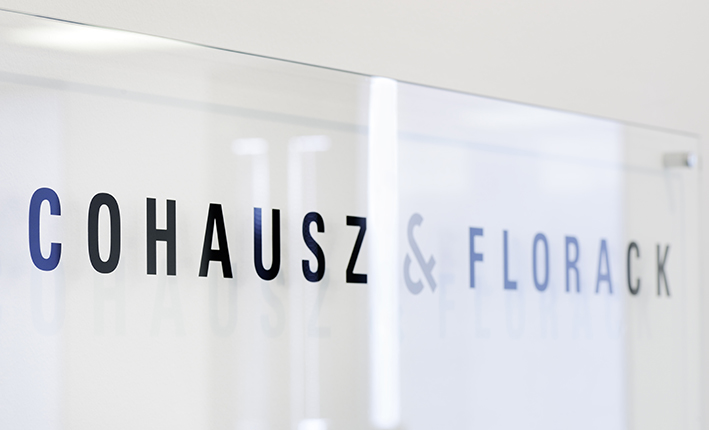What is a FRAND case?
A FRAND case is a patent infringement case based on an SEP. As in every patent case, in a FRAND case the plaintiff must demonstrate infringement and the validity of the SEP – even in Germany, which has a bifurcated system. As in any other patent infringement case, the plaintiff’s intention is to obtain an injunction claim by the court and to enforce it. Only by enforcing the injunction claim will the legal proceeding enter the real world, as the defendant must cease and desist its infringing actions – and here lies the difference between regular patent cases and FRAND patent cases. When a plaintiff is asserting an SEP, they must show that they are willing to license this SEP under FRAND terms. In case the plaintiff does not succeed, the court may confirm infringement and validity but will not grant the injunction claim and, consequently, the injunction claim cannot be enforced and the legal proceedings will have no convincing effect in the real world.
First national SEP cases
The first patent infringement cases based on SEPs were filed in parallel in 2000 in the United States and Germany. The cases were based on patents essential to the MPEG-2 standard, the first commercial successful standard specifying video compression. The MPEG-2 standard marked the transition from analogue television, introduced in the 1960s, to digital television that we enjoy today.
This first enforcement campaign based on MPEG-2 essential patents began in the European Union before the Dusseldorf District Court. Between 2000 and 2008, 16 enforcement campaigns against PC, set-top box and DVD manufacturers were started. Many of the campaigns were settled by a settlement based on concluding the offered MPEG-2 patent pool licence before any court decision. In two campaigns, groundbreaking court decisions were issued, demonstrating the relevance and constraints of the FRAND defence.
In the first verdict, Videosignalcodierung I, issued by the Dusseldorf District Court in 2006 against a German DVD manufacturer, the FRAND defence was raised and considered by a court for the first time. The court’s findings are in line with all subsequent FRAND court decisions. The plaintiffs demonstrated that the terms of the global MPEG-2 patent pool licence fulfilled FRAND terms. Against the background of available bilateral licences, a one-stop shop licence covering all countries in which MPEG-2 SEPs exist based on a fixed royalty per product was confirmed as FRAND. In other words, an implementer must decide between accepting a global FRAND licence or face being injuncted in Germany. The Dusseldorf District Court affirmed infringement and obvious validity. Due to the rejection of the FRAND defence, the court granted SEP injunction claims. The claim was enforced as the plaintiffs took the risk of potential damage claims due to unjust enforcement. Every plaintiff enforcing a first-instance injunction claim in Germany will face such potential damage claims. This considerable risk has been acceptable in the MPEG-2 cases in view of the very convincing infringement of multiple SEPs.
Nine further enforcement campaigns have been launched before the Dusseldorf District Court against DVD manufacturers based in the United Kingdom, Italy, Spain, Bulgaria, Poland, Czech Republic, Denmark, Greece and Germany.
The Dusseldorf District Court’s Videosignalcodierung III decision was issued in one such case against a DVD manufacturer based in Denmark and Germany. The defendant argued that taking a licence under only the German patents in the MPEG-2 patent pool should be sufficient, as there was a case pending in Germany only. The court confirmed the requirement that a patent pool licence will be granted only where all affiliates of the defendant accept that their worldwide products be covered under the patent pool licence. The pool licence, being an alternative licence offered by patent owners on their own volition as a private market solution, has been found to be FRAND based on its market acceptance. In view of its availability, it would have been simply unjustifiable to ask the plaintiffs and SEP owners to file SEP infringement cases in every country in which affiliates of the defendants are seated – this is against the background that bilateral licences are available as an alternative.
In the same decision, the court also confirmed that licensing terms not involving any cap, irrespective of the amount of sales, are FRAND. As in Videosignalcodierung I, the court granted the injunction claim and the plaintiffs decided to enforce them, in this case, for example, by seizing the defendant’s bank account.
Federal Court of Justice and ECJ decisions
After the first successful enforcement campaigns launched in 2000 and 2001, in 2002 one of the MPEG-2 patent owners filed parallel SEP cases based on patents essential for the standard for recordable compact discs (CD-R), known as the ‘Orange-Book standard’. The cases were filed before the Mannheim District Court. In 2009, the Federal Court of Justice issued the decision with the corresponding name Orange-Book Standard. As the highest competent German court, the Federal Court of Justice confirmed the availability of the FRAND defence as it was first applied by the Dusseldorf District Court in Videosignalcodierung I. Based on the court’s finding that the terms of the global CD-R licence are FRAND, the Federal Court of Justice confirmed the SEP injunction claim. In addition, the Federal Court of Justice issued a FRAND script for the negotiations between the patent pool and the implementer. This script defines the choreography for a case in which – as in Orange-Book Standard – the availability of the patent pool licence was common knowledge.
Parallel to these German cases, further cases between the Orange-Book standard parties have been decided in the Netherlands, finding another solution for the FRAND defence. The Rechtbank s-Gravenhage basically referred the defendant to the Dutch antitrust authorities in order to obtain a compulsory licence based on a potentially convincing FRAND argument. In due course, after Orange-Book Standard, Huawei filed an SEP infringement action in 2011 based on a patent essential for the mobile communication standard long-term evolution (commonly known as LTE) before the Dusseldorf District Court. While the case was pending, Samsung independently filed plural SEP infringement actions based on patents essential for the 3G standard with the Mannheim District Court. During the course of the parallel cases, in December 2012, the EU Commission issued a statement of objection to Samsung on the potential misuse of mobile phone SEPs. The Dusseldorf District Court took the commission’s statement as a cause for a referral of FRANDrelated questions in the SEP case filed by Huawei with the European Court of Justice (ECJ) in 2013. In 2015, the ECJ issued perhaps the most prominent FRAND case decision to date: Huawei v ZTE. In Huawei v ZTE the ECJ largely adopted the Federal Court of Justice’s Orange- Book Standard decision, expanding the script for licensing negotiations to broader circumstances.
First national SEP cases
In the wake of Huawei v ZTE, further court actions have been launched resulting in further clarity. In 2015, the Dusseldorf District Court pointed out in SEP case 4b O 140/13, based on a patent essential for near-field communication (NFC), that it is not sufficient that an SEP is asserted to enable the FRAND defence. In addition to the qualification of a patent as an SEP, it is necessary to show that this SEP provides market dominance. In this case, at the time, NFC technology had not provided market dominance in the smartphone market, as large market participants were selling smartphones without any NFC capabilities. Again, the Dusseldorf District Court granted the injunction claim, which was enforced. In continuance of the assertion of MPEG-2 essential patents, the Dusseldorf Higher Regional Court confirmed in Dekodierungsverfahren 1 that the licence terms of the patent pool on advanced video coding (AVC) essential patents are also FRAND. AVC is the standard for video compression following the MPEG-2 standard. The AVC licence (much like the MPEG-2 and CD-R licences) offered globally levelled licensing terms for all countries (ie, including the Chinese market). Different from other patent pool licensing programmes, the AVC licence comprised caps for the royalties. In other words, beyond certain annual sales numbers, no further royalty rates are due. This has been confirmed by the Dusseldorf Higher Regional Court as being FRAND; the injunction claims have been granted and enforced.
In 2020, the Federal Court of Justice provided further clarifications for the available royalty rates leeway – compare FRAND Einwand I and FRAND-Einwand II. Again, in the mobile communication field (3G), a considerable amount of flexibility in setting FRAND terms has been granted to patent pools. The finding that the nondiscrimination limb of FRAND does not mean that all implementers must be offered the same terms gives the parties considerable flexibility. Based on patents essential for wireless communication actions filed with the UK High Court in 2014, in Unwired Planet in 2020 the UK Supreme Court confirmed the availability of an SEP injunction claim. In addition, it has been confirmed – as in Videosignalcodierung I – that the terms of a global licence for a portfolio of SEPs are FRAND. In parallel to the Federal Court of Justice decisions in 2020, it was found that patent pools are permitted to offer royalty rates adopted to the economic licensing situation. Unresolved issues
Despite this rich EU jurisdiction about FRAND, there are pending issues to be resolved. A mobile communication case filed by Nokia before the Dusseldorf District Court was referred to the ECJ, but the case was settled prior to any decision. The questions referred to the ECJ related to the effect of the FRAND requirement when licensing SEPs in the value chain.
• Does the SEP owner have the right to restrict the licensing offer to licensees at a certain level in the value chain?
• In case there is no right of restriction, is the same royalty rate applicable at all levels of the value chain?
The licensing of patents essential to the high efficiency video coding (HEVC) standard brings a further question to the table. The HEVC standard is the successor of the MPEG-2 and AVC standards in the field of video compression. A patent pool has been formed for patents essential to the HEVC standard and it gained considerable market acceptance in good time prior to the launch of compliant products. This licensing programme was followed by another licensing programme, again for HEVC essential patents with considerably higher royalty rates including some of the same patent owners as the first. In this case, the second patent pool may have been established where a market expectation that the first patent pool would provide ccess to most of the related SEPs. In such a situation, in between the first mover and the late mover licensing, the effect of the FRAND obligation is not resolved.
The role of standardisation as part of joint development programmes in view of today’s technical challenges is growing along with the obvious importance of legal certainty for innovators and implementers. Further challenges to the courts will occur. Providing legal certainty and FRAND history in the European Union offers a good example of the law and jurisdictions complying with these requirements.
DOWNLOAD ARTICLE >
This article first appeared in Global Patent Litigation Guide: Helping businesses navigate the new normal 2022, a supplement to IAM, published by Law Business Research - IP Division. To view the guide in full, please go to www.IAM-media.com.
Header: weyo - AdobeStock.com


